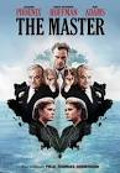
Directed by
Paul Thomas Anderson
137 minutes
Rated MA
Reviewed by
Bernard Hemingway


The Master
Synopsis: The story of the relationship between a returned Marine (Joaquin Phoenix) and a self-styled mystic (Philip Seymour Hoffman) in the immediate post-World War II period.
Paul Thomas Anderson has a track record with which most directors would die happy: There Will Be Blood (2007), Punch-Drunk Love (2002), Magnolia (1999) and Boogie Nights (1997) all have their staunch followers and as a result cumulatively The Master is probably the most eagerly anticipated film of the year. Certainly it confirms the intelligence of Anderson’s film-making, his technical prowess, and his preoccupation with extreme characters but how many will add it to their list of must-see films is another matter.
The problem is that whilst it is a beautifully-composed film, splendidly shot in 65mm to reproduce the look of films of the era with marvellous central performances from Joaquin Phoenix and Philip Seymour Hoffman, it is far from clear what the film is about. Not in the sense of what is about, for as the synopsis above indicates, the story is straightforward enough, but what it is about? That is, what is its point?
It is no secret that the now-deceased Scientology founder L. Ron Hubbard was the inspiration for the character of Hoffman’s Lancaster Dodd. But The Master is not a biopic or even an exposé of Scientology. Its main character is not Dodd but Freddie Quell, an oddball, perhaps war-traumatised, marine with a knack for making alcoholic beverages out of sundry industrial solvents, a trick he learned in the Navy. Dodd takes a shine to Freddie, as if he was some kind of God-sent messenger. Freddie in turn becomes passionately protective of Dodd to the point that his increasingly dysfunctional behaviour threatens the group’s reputation. Dodd recognises that he must part company from his wilfully self-destructive batman. End of film.
One can certainly take The Master as a condemnation of cults in general but in that respect it doesn’t amount to much. Last year’s Martha Marcy May Marlene did that so much better. Perhaps Scientology’s well-known propensity for litigation caused Anderson to veil his criticism of it by removing any direct reference to it but as it stands the film is an engrossing portrait of two demon-possessed characters, who bond in their common disdain for suffocating social conventions.
In a highly-mannered but outstanding performance Phoenix gives us a marvellously tortured soul in Freddie, both vulnerable and volatile. Where he has come from and where he is going we do not know. He is a man doomed to look through windows at lives he can never be part of. Opposite him Hoffman is extraordinary as the self-styled, socialite healer (even if his wife, well played by Amy Adams, is the real power behind the throne) although we know even less of him as a person. He appears fully-formed and stays that way. Anderson’s concern is not with these two as individuals but with the relationship between them, much as he was with Daniel Plainview and Paul Sunday in There Will Be Blood). But was it a homosexual love, at least on Dodd’s part, did they recognize a mutual madness? Anderson gives us no definite answer and that may well leave some audiences disappointed..
Even if the controversial nature and relative opacity of The Master robbed both Oscar nominees Phoenix and Hoffman of the golden statues the film is not only worth it for their performances alone (Phoenix was nominated for Best Actor which went to Jean Dujardin for The Actor, Hoffman for Best Supporting Actor which went to Christopher Plummer for Beginners, Amy Adams was nominated for Best Actress but lost to Octavia Spencer in The Help).
Vibrant, adventurous film-making comes around very rarely in Hollywood and this is one of those rare cases.
Want something different?





